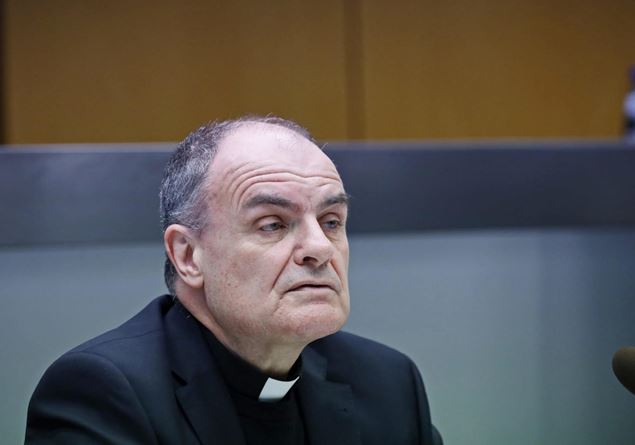«It was not an easy process, but it was necessary. A further step in a journey undertaken 15 years ago, starting from 2010, when the first diocesan help desk dealing with abuse was erected in our diocese.” Monsignor Ivo Muser, bishop of Bolzano Bressanone talks about the report The Courage to Look, which, entrusted to the law firm Westpfahl-Spilker-Wastl of Munich, reported 67 cases of abuse, 59 against minors, which occurred in Alto Adige between 1964 and 2023, by 29 priests. «We asked to investigate starting from the date of erection of the diocese, precisely 1964» he explains on the phone.
Why did you request this report?
«Because we felt this wound within the Church and within families. We discussed it a lot, even in the diocesan councils, evaluating pros and cons and then we thought of re-elaborating all the cases that had been reported in some way starting from 1964, since we became the diocese of Bolzano Bressanone, after the reorganization of the two current parts . We have started this process, a painful process, not at all easy, but we hope it will also be a contribution of hope. The most important thing for me is a change of mentality, of culture that must involve the entire diocese, all of us, because it is an atrocious wound within the Church, within families and in our society.”
You called it the Courage to Look, but there is also the courage to speak.
«It all starts with the courage to speak. What helped me most to understand is the direct relationship, the direct, immediate stories with the victims. This changes perspective. When one comes into concrete and immediate contact with these painful, humiliating stories, it changes the mind and also the heart. This is the change that needs to happen: seeing this atrocious wound from the perspective of the victims and not just from that of the institution or the abuser. The victims need to tell, to speak. This is also touching.”
The names of the abusers were also given to her. What will you do?
«Most of them are already dead, some are very old, others still have a limited role within the pastoral care. Prevention is also important. We have already taken some measures, but perhaps we also need to review how these measures are experienced and accepted. But in most cases the abusers are dead or very old.”
Will you take action for the most recent cases?
«Of course. It’s important. As I was saying, we have already taken many measures. When there is a suspicion we act according to the rules of canon law, we report it to the Congregation of the faith and so on. And all these things have already happened. And then each case is a case in itself, not everyone is on the same trail.”
At the press conference he also spoke about the culture of error. What does it mean?
«Admit mistakes. Precisely for this reason I took responsibility, both personal and institutional, because all this happened within our diocesan Church, it is something that contradicts the Gospel, and for this reason we must take responsibility and I must do it first because I am the bishop of this community”.
The CEI has also started a process of transparency. Can your case inspire us to do more?
«I don’t want this thing to be thought of in opposition to others. We are not the most important diocese in Italy, we are not the navel. of the world. I hope that ours is a step within a broader path that must involve all of us and not only the Italian Church, but the universal Church. Pope Francis has said it many times and Pope Benedict had already said it before him: this must be a universal path because, unfortunately, we have realized that the wound is universal. I see it as a moment within a much much broader journey: enough, a certain mentality of hiding, suppressing, obscuring must change. None of us, no one, can treat this wound as if it were nothing.”
How will you change procedures?
«It is important to improve them, that there is a common thread within the organisations: diocesan help desk, a team that intervenes, prevention. And then the priests who still provide a service must be monitored even more, and so on. And I hope that all this helps us talk about these things. It doesn’t have to be a taboo, because if it’s treated like a taboo then it’s the beginning of the end.”
Have some victims called you in recent days?
«Yes, they called me and they all thanked me. I received calls, messages. And they were all happy not because the wound disappears in this way but because they feel taken seriously, they feel listened to.”
The next steps?
«It will be important to discuss this expertise in all the commissions, especially with the brothers, with the priests, in the presbyteral council, in the diocesan pastoral council. This is very important to me because it must involve all of us. And then I hope that all this can also be a stimulus for society because unfortunately this is not only a problem within the structures of the Church, but it is also an atrocious wound within our families and our society.”
Could the Church, being more transparent, also become a point of reference for society?
«I hope so. This could also be an evangelical stimulus, a stimulus of hope. The road is still long, but I see in all this, despite all the wounds, sadness and difficulties, also a reason for hope that has to do with the Holy Year that has just begun.”









